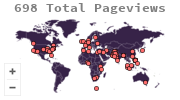Voting Behavior of Pakistan Rural Population in 2018 Elections: A Study of Feudal Influence in Toba Tek Singh
Keywords:
electoral system, Casting Vote, Toba tek SinghAbstract
In the case of Pakistan, electoral system process and behavior of casting the vote is remain a complex challenge for the population since a long decade of democratic history of the Pakistan. This research paper is emphasizing the voting behavior of Pakistan rural population in 2018 elections and specifically a case study of feudal influence in Toba Tek Singh locality is focused in the study. This study analyzing the Toba Tek Singh rural population vote caste with respect to its narrative highlighting the influence of land feudal over the rural population as similar on the democratic system of Pakistan. Meritocracy in the free and fair election system has derail by the rural population voting behavior due to the Biradrism influence which have dominant power over the village or whole locality of that particular place. The study highlighting the key facts leading to the issues behind the voting behavior of rural population. Focus of this research is entirely determine to explore afore-mentioned voting behavior scenario in Toba Tek Singh which influence by the feudal lord power. This research is explaining the insights perspective and scenario of voting behavior of rural population with prospects that enable the population of Pakistan to understand and analyze the entire situation of electoral system of Pakistan in the rural areas in order to providing the awareness and in-depth analysis for the rural vote casting system to approach right voting behavior for the population betterment and wellbeing.
Downloads
Downloads
Published
Issue
Section
License

This work is licensed under a Creative Commons Attribution 4.0 International License.
Journal of Visionary Philosophers (JVP) follows an open-access publishing policy and full text of all published articles is available free, immediately upon publication of an issue. The journal’s contents are published and distributed under the terms of the Creative Commons Attribution 4.0 International (CC-BY 4.0) license. Thus, the work submitted to the journal implies that it is original, unpublished work of the authors (neither published previously nor accepted/under consideration for publication elsewhere).








